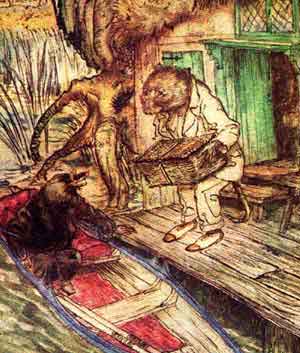I just posted this at Lance's as a Comment - one that I need to post here, as well: Seems to me a lively subject - education in our various religious traditions (something I am grateful to have had in my public school, now many years ago, even if it wasn't technically in the curriculum) enriched my life spiritually and secularly. Makes me feel sorry for all those homeschooled kids who get the monochrome treatment. The issue is, just to start, how to read your literary tradition without having reference to sacred texts (whether you find them sacred or not)?
A delicious subject!
[I started this last weekend, but attentions went to hell and back, for good reasons. Sorry for the delay.]
My childhood household was divided, in my mind, in three parts - my literal-minded Mom, from a fundie family who knew scripture very thoroughly, and, perhaps osmotically, valued the cadences of the King James Version; my agnostic Dad, who loved the words but probably more the ethical and moral puzzles in the Text (he used to debate them, with my Grandad); and teachers and friends at public school whose perceptions and readings (from a variety of traditions) seeped into my reading of everything else.
Still, it was refreshing to read Daniel and a couple of the Synoptic Gospels absolutely straight my first year in college - maybe not absolutely straight, either (we were reading Nietzsche, Plato and Kierkegaard, too) - but we were being intent and careful about what was on the page. That's going to rankle someone, in the smallest group, and from whatever tradition, and it did.
When I started to read to and to tutor friends' kids, this subject came up in conversation with their parents. How can your kids understand the references in this story or book without knowledge of the religious sources? You don't have to be a believer to recognize how the sacred and profane interpenetrate (or, if you are a believer, how ignoring the legacies of pagan philosophy can put you at a disadvantage). If I were a parent - again, faith-and-tradition neutral, for the sake of argument - I would still want to have scanned the Bible for stories and passages that touched nerves over many centuries - for better and worse, depending on my view of the world. I would also want, perhaps a bit later, to compare translations - King James against, for example, the wonderful Fox or Alter translations of the Pentateuch.
One of the most delightful evenings I've ever spent spun out of a question I asked a yeshiva-educated friend about a footnote in Exodus to an opinion of the Sages. He leaned back in luxury and said, "This gives me as much pleasure as you talking about writers!" - and then we went into the exegesis - who was old, who was new in the commentaries, where the problem was, etc.. I don't think anyone who hasn't seen a page of commentary in Hebrew - the subject text in a center block, the commentary, with references to earlier commentaries, surroundng it - can understand the beauty of that conversation, but they should go take a look. It's my principal argument with my fundie forefathers and mothers - any tradition worth its salt is active and encourages inquiry. Nonbelievers, likewise, need to know what they don't believe in order to develop coherent arguments against it, and in that process they may, from my point of view, also absorb the 3rd, 4th, and 5th-hand references that inform things they read everyday. I suspect that a lot of athiests know a lot more Bible than their casual Christian counterparts.
[Addendum: I think kids brought up in Jewish tradition also know more - there are skills you have to master for a bar- or bat - mitzvah, and they include a minimal literacy in scripture that I would challenge most christian sunday school students to match.]
Subscribe to:
Post Comments (Atom)

No comments:
Post a Comment